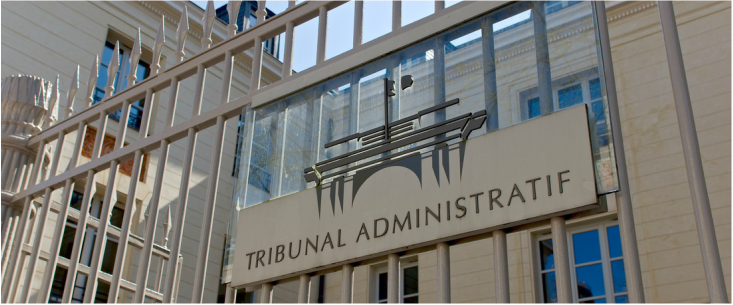The Roundtable
Welcome to the Roundtable, a forum for incisive commentary and analysis
on cases and developments in law and the legal system.
on cases and developments in law and the legal system.
 By Sandeep Suresh Sandeep Suresh is a fifth-year law student at the National Law University in Jodhpur, India. Justice Robert H. Jackson stated in the case of Shaughnessy v. Mezei (1953) that “Procedural fairness and regularity are the indispensable essence of liberty.” [1] Jackson’s commentary captures the great significance of procedural fairness and natural justice. In particular, the impartiality and integrity of arbitrators, although ostensibly simple characteristics, are integral features of arbitration. The right to challenge an arbitrator who does not demonstrate those features, therefore, is essential in assuring the client’s confidence if he or she chooses arbitration as the means of resolving the dispute. The UNCITRAL Model Law on International Commercial Arbitration (Model Law) recognizes this right. [2] However, what is the result if the challenge procedure itself is unfair and against the principles of natural justice? Article 13 of the Model Law lays down the challenge procedure. [3] The controversial part of the provision is found in Article 13(2): Failing such agreement, a party who intends to challenge an arbitrator shall, within fifteen days after becoming aware of the constitution of the arbitral tribunal or after becoming aware of any circumstance referred to in article 12(2), send a written statement of the reasons for the challenge to the arbitral tribunal. Unless the challenged arbitrator withdraws from his office or the other party agrees to the challenge, the arbitral tribunal shall decide on the challenge. The arbitrator, the subject of the challenge, remains in the tribunal that decides the question of challenge. Such a scenario is both clearly unfair and illogical, as the arbitral tribunal will likely decide the question of challenge under the influence of the challenged arbitrator. This provision blatantly ignores the principles of natural justice and procedural fairness that should be respected by every democratic society. A core principle of natural justice nemo judex in causa sua mandates that no one should be the judge of his or her own cause as it leads to potential bias. The last sentence of Article 13(2) directly nullifies the essence of this maxim.
In the 313th meeting of the UNCITRAL Working Group that drafted the Model Law, German Representative Tilman Schumacher clearly pointed out that if one of the arbitrators of a tribunal is challenged, then it would be ideal that he or she should not take part in the decision on the question of challenge. [4] However, this point was not entertained in subsequent sessions, and in an unfortunate downward spiral in the subsequent 314th meeting, Chairman R. Loewe of Austria stated that there was a general agreement within the committee that the challenged arbitrator should remain on the tribunal and rule on the challenge question. [5] Thus, Article 13(2), as it now exists, was conceived. The most unfortunate aspect is that all the countries which have adopted the Model Law have also adopted Article 13(2) without noticing this obstruction to procedural fairness and natural justice. Such a provision that violates the principles of natural justice should be struck down from the Model Law in the name of unconstitutionality and an infringement on the basic principles of justice, liberty and conscience. [1] “Shaughnessy v. Mezei 345 U.S. 206 (1953).” Justia Law. Accessed February 24, 2015. https://supreme.justia.com/cases/federal/us/345/206/case.html. [2] “UNCITRAL Model Law on International Commercial Arbitration (1985),” 1985. http://www.jus.uio.no/lm/un.arbitration.model.law.1985/. [3] Ibid. [4] In Loewe R. (Chair). International commercial arbitration. (1985). 313th meeting of the uncitral working group. Retrieved from http://www.uncitral.org/pdf/english/travaux/arbitration/ml-arb/313meeting-e.pdf [5] In R. Loewe (Chair). International commercial arbitration. (1985). 314th meeting of the uncitral working group Retrieved from http://www.uncitral.org/pdf/english/travaux/arbitration/ml-arb/314meeting-e.pdf Photo Credit: Flickr user Frederic Bisson
0 Comments
Your comment will be posted after it is approved.
Leave a Reply. |
Archives
May 2024
|
